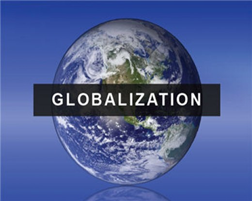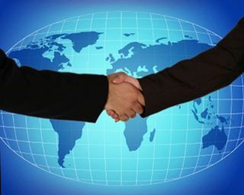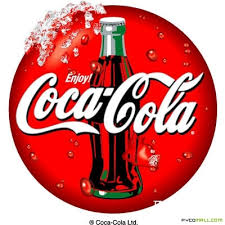Магистры-экономисты. Английский язык english for masters of economics
 Скачать 4.55 Mb. Скачать 4.55 Mb.
|
|
UNIT 4. GLOBALIZATION UNIT 4. GLOBALIZATION LEAD-IN  What is globalization? What are the pros and cons of globalization? Could globalization have happened without the Internet? How has globalization affected our life?  Diversification and globalization are the keys to the future Read and translate the following quotations. Express your point of view (agree/disagree).  It has been said that arguing against globalization is like arguing against the laws of gravity   Kofi Annan, Fujio Mitarai, the seventh Secretary-General of the United Nations Chairman and CEO Canon Inc  We must create a kind of globalization that works for everyone... and not just for a few  Globalization is a great thing, but it needs a legal framework in which to blossom   Nestor Kirchner, Loretta Napoleoni, 51st President of Argentina an Italian journalist and political analyst  Globalization was a deep trend pushed by technology and right ideas, as much as anything else  Jeffrey Sachs, an American economist TEXT 1 WHAT IS ECONOMIC GLOBALIZATION?  It refers to increasing economic interdependence of countries as a result of a significant rise in the movement of goods, service, technology, and capital across international borders. Some sources define it as globalization of markets. It has brought to the surface the concept of a single world market (global market), as a result of which a manufacturer based in one part of the world can sell his product to a consumer in some other part. It has also given rise to several new concepts including the concept of transnational corporations, i.e., those corporations which are active in a number of countries at the same time. Globalization of national economies is not just restricted to trade relations between countries, but also encompasses foreign direct investment by companies from developed nations in developing nations. For instance, a large number of North American and European companies are investing in Asian markets. One may argue that it's the cheap labour that brings in the bigwigs from the developed countries to these countries, but that doesn't undermine the fact that it creates employment opportunities in these countries and helps their economy develop. With due respect to the fact that coordination with each other is the need of this hour, several countries have come together on a common platform. This has not just created, but also strengthened the complex networks of production and capital in different parts of the world. Even various governments have taken a note of the need of integrating economies, and the formation of supranational organizations, like the International Monetary Fund (IMF) and World Trade Organization (WTO), have been facilitated for this very reason. There is no doubt about the fact that international trade, foreign direct investments, alliance capitalism, and other similar concepts have been beneficial for several people across the globe. But at the same time, you cannot ignore the fact that the trend has some negative consequences as well. These pros and cons have to be taken into consideration when determining whether the concept has really been helpful for the world as a whole, or not. The fact that the world has become a global market has come as a boon for many people. The significant rise in international trade and foreign direct investment over the last decades has increased employment opportunities and income. More importantly, economic globalization has also accelerated the rate at which development is taking place in various regions of the world. The fact that Asian countries have developed in a relatively short span of time highlights this fact very well. The giant strides in terms of technological advancement that we have taken over the last decades have also contributed to this acceleration. With increasing opportunities, the ability of individuals to generate enormous amount of wealth has also increased. Several corporations have set up plants in other countries as it helps them evade tariffs or quotas stipulated by those countries. This has turned out to be quite helpful for end consumer, as doing away with import duties has brought down the price of foreign goods by a great extent. With cheap labour at their disposal, these corporations can also afford to slash down the price of their goods without having to cut down on the profit margin, which is again beneficial for end consumers. Alongside the numerous advantages mentioned above, there exist some disadvantages of globalization which we can't afford to turn a blind eye to. Critics argue that it is our biggest problem, as the domino effect of economic crisis in one country can result in severe repercussions on various other countries with whom, it shares economic ties. The fact that corporations from developed countries invest in developing countries of Asia, wherein they get cheap labour, has not gone down to well with critics, who call it exploitation of labor. They also cite that the alarming rate at which development is occurring is not coming easy on our natural resources. There is a little doubt about the fact that economic globalization has also triggered political and ideological tensions in various parts of the world, which are expected to escalate further as we inch away from the era of military superpower towards … the era of economic superpower. Lastly the interdependence of nations has not done much to help poverty-struck countries of Asia and Africa. With all these arguments, the critics suggest that even though economic globalization is occurring, we are not heading in right direction. Many experts say that we need a different kind of globalization in our world today. There must be ways to make sure that all countries profit from the good sides of globalization. We should help poorer countries by giving them better education and showing them how new technology works. Every year, leaders of the world’s biggest industrial countries get together to discuss economic problems. This meeting is called the G8 summit. In the last few years groups against globalization have organized protest marches and demonstrations to point out that not everyone is happy with how the world’s economy is developing. http://www.buzzle.com/articles/economic-globalization.html TASKS TEXT COMPREHENTION What are the advantages and disadvantages of globalization according to Text1? Fill in the table.
2. Give English equivalents for the following words and word combinations from Text 1. Торговые связи, наднациональная организация, международные границы, доход, производитель, развитая страна, возможность трудоустройства, источник, последствие, выгода, потребитель, промежуток времени, развивающаяся страна, конечный потребитель, положительные и отрицательные стороны, дешёвая рабочая сила, ускорение, ввозные пошлины, выгодный, последствие, правительство, политическая напряженность, правильное направление, взаимозависимость стран, укрепить, мировой рынок, очень бедные страны, многочисленные преимущества. 3.Translate the derivatives of the words. What parts of speech do they belong to? environ – окружать → environment, environmental, environmentalist, environmentology manufacture – производить → manufactured, manufacturing, manufacturer develop – развивать → developer, development, developmental, undeveloped govern – управлять → governance, governess, government, governmental, governmentese global – мировой → globalism, globally, globalization, globe 6. nation – нация → national, nationalism, nationalist, nationwide 7. accelerate – ускорять → accelerating, accelerator, nonaccelerating  4. Find words in the text which match the definitions below.  2.____________________ (n), an important meeting or set of meetings between the leaders of several governments.  1._________________ (n), things that are produced in order to be sold.   3. _________________ (n), new machines, equipment, and ways of doing things that are based on modern knowledge about science and computers. 4. ______________, the use of money to get a profit or to make a business activity successful.  5. _______________ (n), a big company, or a group of companies acting together as a single organization.  7. _________ (n), the process of teaching and learning, usually at school, college, or university.  6. ___________ (n), someone who buys and uses products and services. 5. Match the words to make word combinations.  1. transnational a. consumer 1. transnational a. consumer 2. developed b. economy 3. direct c. resources 4. technological d. nation 5. international e. corporation 6. end f. advancement 7. national g. borders 8. natural h. investment 6. Fill in the gaps in the sentences using the word combinations from Task 5. A _______ has its headquarters in one country and operates wholly or partially owned subsidiaries in one or more other countries. International trade is the exchange of capital, goods, and services across _______. When people do not have some _______, their quality of life can get lower. A _______ is a sovereign state that has a highly developed economy and advanced technological infrastructure. Globalization of national economies encompasses foreign _______ by companies from developed nations in developing nations. _______ refers to a country's financial resources and its financial management with a view related to its productivity. There were many _______ during this time. ... These advancements in weapon technology changed warfare forever. TEXT 2 GLOBALIZATION AND THE COCA-COLA COMPANY C  oca-Cola is one of the most well-known brands in the world. It now operates in over 200 countries with over 84,000 suppliers. Currently, over 70% of Coca Cola’s business income is generated from non-US sources (2012). In over a century, Coca-Cola grew into a multi-million dollar business. However, the road to success has not always been easy for Coca-Cola. Many countries banned the use of Coca-Cola products, claiming that these products are “threatening public health” and “encouraging obesity.” In addition, the beverage industry has been flooded with competitors introducing new soft drink products, such as Pepsi, along with soft drink alternatives, such as Gatorade, bottled water, fruit juice, and energy drinks. oca-Cola is one of the most well-known brands in the world. It now operates in over 200 countries with over 84,000 suppliers. Currently, over 70% of Coca Cola’s business income is generated from non-US sources (2012). In over a century, Coca-Cola grew into a multi-million dollar business. However, the road to success has not always been easy for Coca-Cola. Many countries banned the use of Coca-Cola products, claiming that these products are “threatening public health” and “encouraging obesity.” In addition, the beverage industry has been flooded with competitors introducing new soft drink products, such as Pepsi, along with soft drink alternatives, such as Gatorade, bottled water, fruit juice, and energy drinks.Now, let us take a closer look at Coca Cola’s journey to globalization. Founded back in the 1880’s, Coca-Cola was developed by John Pemberton as an American brand known for high quality and consistency. During this period in history, storekeepers demanded pre-packaged products with brand name recognition. Coca-Cola met these demands with its iconic red and white logo and brand marketing to instill confidence in the consumer that the Coca-Cola product would taste the same everywhere it was purchased. These strategies soon became the foundation for Coca-Cola’s plan to expand globally. In the early 1900’s, Coca-Cola started to globalize. Bottling plants were initially built in Cuba and Panama as the US military spread to these regions, causing a rise in demand for the Coca-Cola brand. These plants proved to be successful, reducing shipping and delivery costs typical in these regions. Soon after, additional bottling plants opened in Hawaii, Puerto Rico, and the Philippines. These efforts launched Coca-Cola’s investment in testing foreign markets for future expansion. By 1926, Coca-Cola has established foreign relationships and plants around the world in support of its newly created center of global operations. Coca-Cola continued on its path of mass production and rapid expansion for the next several decades. Local branches along with local partnerships to produce and distribute Coca-Cola products were established throughout the world. The ending of World War II and the Cold War marked the signature period in which Coca-Cola had established itself as a true global corporation known for its efficiency and worldwide capabilities. Coca-Cola’s marketing strategies played a significant role in successfully globalizing the company. The company’s popular advertising slogans and catchy jingles played into the hearts and minds of people around the world. Some of the most remembered advertising slogans include: “Drink Coca-Cola”, “Things go better with Coke”, “Always Coca-Cola”. Coupled with these slogans, songs were used to have consumers remember the brand. In addition to Coca-Cola’s advertising efforts, Coca-Cola became the first commercial sponsor of the Olympic Games in Amsterdam in 1928. Coca-Cola continues to be an Olympic Games sponsor today. Coca-Cola has also sponsored many other sporting events such as the International Federation of Association Football (FIFA), National Hockey League (NHL), National Basketball Association (NBA), National Football Association (NFL), Major League Baseball (MLB), NASCAR, and Cricket World Cup. Another key factor that has supported Coca Cola’s globalization vision is the company’s ability to customize the product to meet the needs and wants of individual markets. For example, Coca-Cola has been able to tailor its product line to meet the needs of the younger consumer by offering Powerade and flavored Coke products, such as Cherry Coke and Vanilla Coke. Additionally, the company is meeting the needs of the older consumer with Diet Coke, Vitamin Water. Coca-Cola has invested significant time and money into researching and understanding different marketing segments based on lifestyle, age, and income in order to accurately develop and market its products.  Packaging differentiation also played a key role in how adaptable the Coca-Cola product is to various market segments. Functional packaging has been used to make the products available in different sizes and forms, including glass and plastic bottles, aluminum cans, and fountain drink dispensers. To promote the company’s commitment to environmental sustainability, all packaging materials are designed to be recyclable and labeled accordingly for easy consumer identification. Packaging differentiation also played a key role in how adaptable the Coca-Cola product is to various market segments. Functional packaging has been used to make the products available in different sizes and forms, including glass and plastic bottles, aluminum cans, and fountain drink dispensers. To promote the company’s commitment to environmental sustainability, all packaging materials are designed to be recyclable and labeled accordingly for easy consumer identification.Technology advances contributed to Coca-Cola’s ability to globalize rapidly throughout the 20th century. Product transportation became more efficient and cost effective with the development of bigger and faster semi-trucks, cargo ships, jet aircraft, and trains. Coca-Cola was able to manufacture and ship products quicker and farther to market segments that were unreachable before these transportation improvements. Computerization also led to slashed product costs and improved efficiencies. Computerized and automated manufacturing equipment increased the speed and volume in which products were produced. These technological advances enabled Coca Cola to compete on a global scale, selling the well-known brand of products across the world. http://www.saylor.org TEXT COMPREHENTION |
